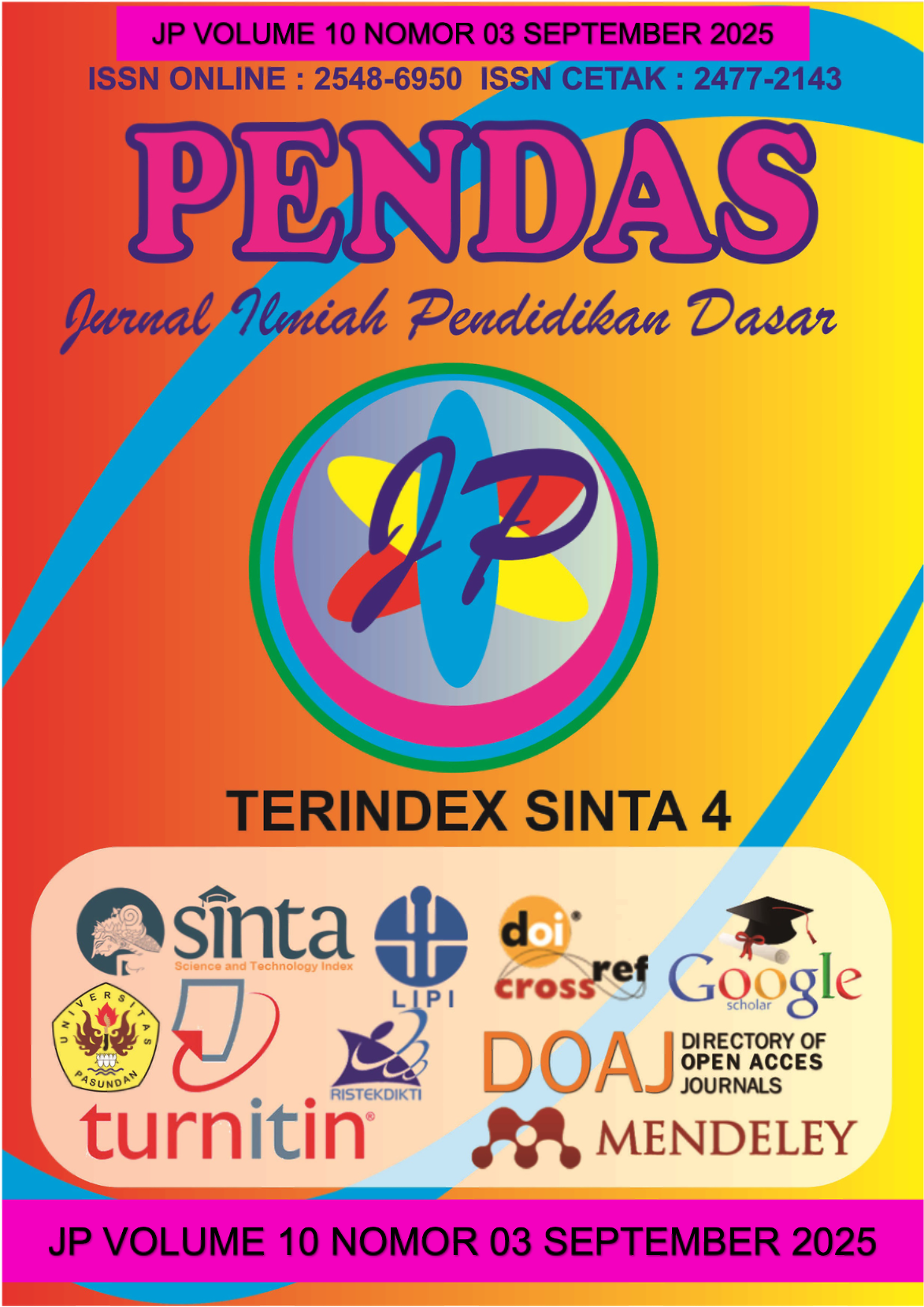STRATEGI MANAJEMEN TOKO DALAM MENINGKATKAN KINERJA PEGAWAI TOKO MA’HAD AL-ZAYTUN
DOI:
https://doi.org/10.23969/jp.v10i03.33008Keywords:
Social media, learning behavior, motivation, concentration, studentsAbstract
This study aims to analyze the management strategies applied in Toko Ma’had Al-Zaytun in improving employee performance. Using a qualitative descriptive approach, data were collected through interviews, observation, and documentation, then analyzed using Miles and Huberman’s interactive model. The findings reveal that management strategies were implemented through three main stages: planning, implementation, and evaluation. Planning involved structured work distribution and a shift system; implementation emphasized discipline, sincerity, and responsibility based on Islamic values; while evaluation was carried out through direct supervision and regular performance assessment. Supporting factors include transformational leadership, open communication, and a conducive work environment, whereas inhibiting factors are limited human resources, inadequate facilities, and lack of training. This study contributes theoretically by integrating modern strategic management theory with Islamic values, practically by providing recommendations for managing pesantren business units, and methodologically by proving the relevance of qualitative descriptive approaches in exploring complex managerial phenomena.
Downloads
References
Bandura, A. (1986). Social foundations of thought and action: A social cognitive theory. Englewood Cliffs: Prentice-Hall.
Blumer, H. (1986). Symbolic interactionism: Perspective and method. University of California Press.
Creswell, J. W., & Creswell, J. D. (2018). Research design: Qualitative, quantitative, and mixed methods approaches (5th ed.). Thousand Oaks, CA: Sage Publications.
Etikan, I., & Bala, K. (2017). Sampling and sampling methods. Biometrics & Biostatistics International Journal, 5(6), 215–217. https://doi.org/10.15406/bbij.2017.05.00149
Fetters, M. D., Curry, L. A., & Creswell, J. W. (2013). Achieving integration in mixed methods designs: Principles and practices. Health Services Research, 48(6), 2134–2156. https://doi.org/10.1111/1475-6773.12117
Gunawan, R. (2022). Media sosial dan keterlibatan akademik mahasiswa: Studi kuantitatif. Jurnal Ilmu Komunikasi, 20(2), 155–170.
Hair, J. F., Black, W. C., Babin, B. J., & Anderson, R. E. (2019). Multivariate data analysis (8th ed.). Hampshire: Cengage Learning.
Hidayat, A., & Nugraha, F. (2022). Pengaruh intensitas penggunaan media sosial terhadap prestasi akademik mahasiswa. Jurnal Psikologi Pendidikan, 14(1), 55–67.
Katz, E., Blumler, J. G., & Gurevitch, M. (1973). Uses and gratifications research. Public Opinion Quarterly, 37(4), 509–523. https://doi.org/10.1086/268109
Kemenristekdikti. (2021). Pedoman etika penelitian pendidikan tinggi. Jakarta: Direktorat Jenderal Pendidikan Tinggi.
Montag, C., Wegmann, E., Sariyska, R., Demetrovics, Z., & Brand, M. (2021). How to overcome social media addiction: Strategies and future directions. Addictive Behaviors Reports, 14, 100394. https://doi.org/10.1016/j.abrep.2021.100394
Nasrullah, R. (2021). Media sosial: Perspektif komunikasi, budaya, dan sosioteknologi. Bandung: Simbiosa Rekatama Media.
Putri, A. (2023). Strategi pemanfaatan media sosial dalam menunjang prestasi belajar mahasiswa. Jurnal Teknologi Pendidikan, 21(1), 34–45.
Rahayu, N., & Sari, I. (2021). Pemanfaatan media sosial sebagai sarana belajar mahasiswa. Jurnal Pendidikan dan Teknologi, 12(1), 45–58.
Santoso, A. (2020). Intensitas penggunaan media sosial dan konsentrasi belajar mahasiswa. Jurnal Psikologi Pendidikan, 18(2), 122–131.
Sugiyono. (2022). Metode penelitian kuantitatif, kualitatif, dan R&D. Bandung: Alfabeta.
Sweller, J. (2011). Cognitive load theory. In J. P. Mestre & B. H. Ross (Eds.), The psychology of learning and motivation (Vol. 55, pp. 37–76). Academic Press.
Taber, K. S. (2018). The use of Cronbach’s alpha when developing and reporting research instruments in science education. Research in Science Education, 48(6), 1273–1296. https://doi.org/10.1007/s11165-016-9602-2
Zimmerman, B. J. (2002). Becoming a self-regulated learner: An overview. Theory Into Practice, 41(2), 64–70. https://doi.org/10.1207/s15430421tip4102_2
Downloads
Published
Issue
Section
License
Copyright (c) 2025 Pendas : Jurnal Ilmiah Pendidikan Dasar

This work is licensed under a Creative Commons Attribution 4.0 International License.














































